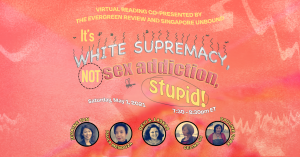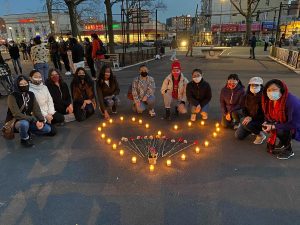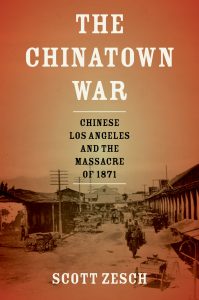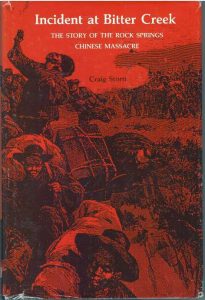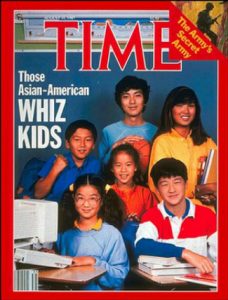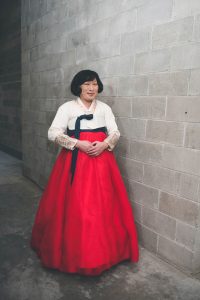“It’s White Supremacy, Not Sex Addiction, Stupid!”: the Evergreen Review event on anti-Asian violence (5.1.21)
I would like to thank Dale Peck of the Evergreen Review, Jee Leong Koh of Singapore Unbound and everyone else who helped organize this important event. I’m honored and delighted to be joining such wonderful writers and poets as Jerrine Tan, Paula Mendoza, Celina Su and Devi S. Laskar.
And I will say that I join with you today in anger and sorrow and resolve: anger at the hatred that took the lives of eight innocent victims of hate — seven of them women and six of them Asian American women — in the Atlanta area on March 16 in what is being called the ‘Atlanta Massacre.’ Sorrow for the loss of innocent lives: eight people taken from us for no legitimate reason, eight human beings with hopes and dreams and challenges just like the rest of us. And resolve that we should take this horrific tragedy and turn it into a catalyst for real change in this country.
In the first press conference the Cherokee County sheriff’s office held after the killings, Captain Jay Baker infamously said of the murderer Aaron Robert Long that he was “just having a bad day.” Well, the eight people he murdered had a far worse day — that turned out to be the last day of their lives — and the sheriff’s captain who could try to excuse or explain away these murders by trying to cast the murderer in a more sympathetic light was just demonstrating his own white privilege and male privilege; it turns out that he even posted comments on his own Facebook page that tried to link the Corona virus to China with Trump-style rhetoric — the kind of rhetoric that has incited an almost unprecedented wave of violence against Americans of Asian descent since the onset of the pandemic a year ago last month.
I say ‘almost’ unprecedented because those Americans who know the history of Asian immigrants in this country know that there’s a long history of violence against Asians and Asian Americans that is only being widely reported in the media in the wake of the Atlanta massacre. While African Americans have been routinely subjected to lynching and racial violence since slave ships brought the first Africans in chains to the North American continent over 400 years ago, immigrants from Asia have also been subjected to racialized violence for well over a century and a half — ever since the first wave of Chinese immigration in response to the Gold Rush in California in 1848.
In fact, the single worst lynching in American history was the lynching of 19 Chinese immigrants by a white mob in Los Angeles on 24 October 1871. Why is it that so few Americans — including too few Asian Americans — know this long history of racial violence against Asian Americans and Pacific Islanders? Why is it that so few Americans know that it was Asians who were the first targets of anti-immigration legislation in the United States? The Page Act of 1875 was the very first legislation enacted by Congress to restrict immigration from Asia and specifically from China, which is where most of the first wave of Asian immigrants came from; one of the invidious assumptions underlying the Page Act was that all or most Chinese women were prostitutes, and so one has to talk about the relationship between sex work and violence against Asians and Asian women in particular that ties the Atlanta massacre last month to the whole history of anti-Asian hate and anti-Asian violence in this country.
Those Americans who know might know something about the history of anti-immigration legislation in the United States may know that the Chinese Exclusion Act of 1882 was the first legislation specifically restricting immigration from a specific country; unfortunately, the Immigration Act of 1882 (as it was officially known) was only repealed in 1943 because the Republic of China was an ally of the United States against Japan in World War II and even then, the Magnuson Act of 1943 only allowed 105 Chinese to enter the United States each year. The Immigration & Nationality Act of 1952 abolished explicit racial barriers, but it wasn’t until Lyndon Baines Johnson signed the Immigration & Nationality Act of 1965 into law that the ‘national origins formula’ was completely eliminated, opening the way for significant immigration from Asia for the first time in 83 years; since 1965, Asians have become the fastest growing demographic in the United States, yet as we have seen, violence against Asian Americans has increased.
Donald Trump certainly bears considerable responsibility for inciting violence against Asian Americans with his racist and utterly irresponsible rhetoric about the Corona virus pandemic; but Trump didn’t invent anti-Asian hate or create the haters who are perpetrating hate crimes against us and it is important to recognize that hatred and racialized violence against Asians in the United States has been a current throughout the history of Asian America; what makes the Atlanta massacre different is not the violence but rather the media attention to it, which is nearly unprecedented in US history.
Here I would cite two incidents that few Asian Americans and still fewer non-Asian Americans are aware of: the Rock Springs massacre of 1885 and the Hells Canyon massacre of 1887. In 1885, white miners in Wyoming’s Sweetwater County jealous of Chinese miners robbed, shot and stabbed Chinese and burned many of them alive in their houses, killing at least 28; no one was ever arrested or held accountable for the violence. In May 1887, 34 Chinese gold miners were ambushed and murdered in Oregon’s Hells Canyon in what was also known as the Snake River massacre, stealing somewhere between $4,000 to $50,00 worth of gold from the murdered Chinese; the site of the massacre was renamed ‘Chinese Massacre Cove’ in 2005 over the objections of Wallowa Counmty commissioners.
When I was in high school, I had a class on American history from a teacher who had a high reputation as one of the best in my school; virtually none of what I’ve mentioned here was mentioned in our textbook and my teacher uttered not a single word about anti-Asian discrimination or violence in the United States. I seem to vaguely recall a passing reference in our textbook to Chinese immigration in the nineteenth century and a passing reference to the ‘internment’ (read: imprisonment) of Japanese Americans during World War II, but other than that, I can’t recall anything in that textbook to Asian Americans.
In 1982, five years after the high school American history class that taught me next to nothing about Asian American history, Chinese American Vincent Chin was brutally murdered by two white racists in the Detroit suburb of Highland Park in retaliation for Japanese competition with the US auto industry, one of the murderers being a Chrysler plant supervisor and the other his stepson, a laid-off auto worker; neither Ronald Ebens nor Michael Nitz spent a day in jail for the murder; they paid a $3,000 fine and $780 in court costs; but was Vincent Chin’s life really worth only $3,780…? The gross injustice of the acquittals helped fuel the growth of the Asian American movement and helped politicize at least some Asian Americans who otherwise might have been comfortable with attempting to assimilate as a ‘model minority.’ But the Model Minority Myth hasn’t saved us from discrimination, abuse, harassment and violence, as last week’s events in Georgia have proven beyond the shadow of a doubt; instead, the Model Minority Myth has only served the interests of the white establishment to pit APIs against other communities of color when the only way forward is to forge bonds of solidarity with other communities of color.
And just as we need to reject the Model Minority Myth, we need to question the notion that more police will protect us; in fact, more policing is not the answer, especially not in a city in which the NYPD have routinely engaged in police brutality against people of color, including APIs and LGBT/queer people of color; the NYPD’s $6 billion annual budget is larger than that of the national military budgets of many foreign countries. Nor will hate crimes legislation save us; in fact, New York has a state hate crimes law that includes race and ethnicity but that statute hasn’t done anything to prevent this latest wave of hate crimes against us. Instead, we need to bring a progressive feminist intersectional analysis to bear on the current crisis.
And as a progressive trans feminist of Korean birth, I would argue that we have to understand that the six Asian immigrant women who were murdered in Atlanta lived — and died — at the intersection of multiple oppressions of race, gender, sexuality, class, nationality and immigration status. While their murderer made clear his racial animus in his on-line rants against China and Asians, we also have to understand that women who work in massage parlors do so on the margins of the sex industry and this is yet another compelling argument to decriminalize sex work of all kinds, so I would urge members of the New York State Senate and Assembly to support Assembly Member Ron Kim’s bill that is supported by the coalition organized by Red Canary Song to decriminalize sex work under state law.
Let me conclude by acknowledging that the way forward will be a difficult one and there is no easy answer to the miasma of hatred and violence that we now find ourselves in. I would argue that we must set for ourselves the goal not only of educating law enforcement and the criminal justice system about anti-Asian hate but of transforming that system which all too often delivers only criminal injustice to APIs and other people of color as well as lesbian, gay, bisexual, transgendered (LGBTQ) people and members of other marginalized groups in this city, this state and this country. Our goal must be nothing less than to transform society so that racialized, sexualized and gendered violence against any group becomes inconceivable. I live in Jackson Heights — which a demographer recently determined was the most demographically diverse spot on planet earth — in the borough of Queens, the most diverse county in the country; as we celebrate Asian American Pacific Islander Heritage Month, let’s commit to the radical pursuit of justice for all so that racialized, sexualized and gendered violence becomes inconceivable in our society. Thank you.
This is the text of Pauline Park’s reading at the “It’s White Supremacy, Not Sex Addiction, Stupid!”: the Evergreen Review event on anti-Asian violence (5.1.21). Pauline Park is chair of the New York Association for Gender Rights Association (NYAGRA) and president of the board of directors of Queens Pride House, the center for the LGBT community of Queens. Park led the campaign for the transgender rights law enacted by the New York City Council in 2002 and was the first openly transgendered grand marshal of the New York City LGBT Pride March in 2005. Park participated in the first US LGBTQ delegation tour of Palestine in 2012 and keynoted the Queer Korea Festival/Seoul Pride Parade in 2015, the largest event in the history of the LGBT community of Korea up to that date. Park did her B.A. in philosophy at the University of Wisconsin-Madison, her M.Sc. in European studies at the London School of Economics & Political Science and her Ph.D. in political science at the University of Illinois at Urbana-Champaign.
